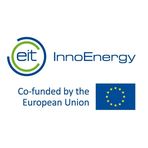Europe's Tech Divide: New Funds Emerge as Startups Face Insolvency and Losses
October 3, 2025, 9:37 am

Location: Netherlands, North Brabant, Eindhoven
Employees: 201-500
Founded date: 2010
Europe's startup ecosystem sees major movements. The Global Resilience Innovation Fund (GRIF) debuts, targeting €250M for DefenseTech and security innovations across NATO states. Norwegian private equity firm Verdane secures €2 billion for its largest fund, Freya XII, boosting its total capital to €9 billion for growth-stage investments. Hamburg-based suena energy gains €8 million Series A funding to expand its AI-driven energy storage optimization. Berlin's Next Matter, an operations automation platform, files for insolvency despite prior significant investment. Meanwhile, the Luca gastro app reports substantial losses, prompting questions on its future, even with continued investor backing. This volatile landscape highlights both explosive growth potential and harsh market realities.
The European tech landscape buzzes. Innovation drives significant investment. Yet, market corrections hit hard. New funds launch. Energy solutions secure capital. Other ventures falter, facing insolvency or deep losses. This dynamic defines the current startup climate.
A crucial new player enters the venture capital scene. The Global Resilience Innovation Fund (GRIF) officially launches. This investor focuses on DefenseTech, Security, and Disaster Management. Founders include Sabine Hampel, Priscilla Schelp, and Faik Yargucu. Hampel brings military and investment expertise. Schelp is a seasoned founder. Yargucu contributes financial acumen.
GRIF targets pre-seed to Series A startups. Its mission is clear: invest in critical technologies. These innovations protect lives. They stabilize democracies. They safeguard global infrastructure. Examples include AI-powered wildfire detection. Anti-drone systems are another priority. Resilient supply chains matter. Next-gen cybersecurity solutions are vital.
The fund emphasizes dual-use and civil technologies. Its regional focus is NATO nations and allies. This aligns with geopolitical imperatives. GRIF’s ambitious target volume stands at €200 million to €250 million. This marks a significant commitment to resilience and innovation. It addresses growing global challenges head-on.
On the private equity front, Verdane makes a powerful statement. The Norwegian firm announces the final closing of its Verdane Freya XII fund. It secured a colossal €2 billion. This fund is Verdane's largest to date. It elevates the firm's total capital raised to €9 billion since its 2003 inception.
Verdane invests in rapidly growing companies. Its portfolio exceeds 200 ventures. The growth investor has significantly impacted the DACH region. It deployed nearly €1 billion across approximately 20 companies. Notable investments include Urban Sports Club, Momox, and Smava. Verdane's strategic approach targets businesses poised for significant expansion. This new fund reinforces its position as a leading European growth investor.
Energy innovation continues its ascent. Hamburg-based suena energy secures substantial funding. The startup closed an €8 million Series A round. This capital fuels its growth strategy. suena energy, founded in 2021, develops cutting-edge software. Its cloud-based platform optimizes energy storage operations.
The company's proprietary Energy Trading Autopilot is key. This system automates AI-driven trading. It optimizes flexibility across power and ancillary service markets. Real-time data and forecasts guide dispatch schedules. The goal is maximized revenues. Minimizing risk and battery degradation are also central.
Eneco Ventures led the funding round. Eneco is a Dutch energy provider. Impact venture capital fund 4impact also participated. Existing investors included InnoEnergy, J.O.S.S., Santander, and Energie 360°. suena energy previously raised €4 million. Its vision is ambitious. The company aims for market leadership in digital energy storage optimization. International expansion is a core focus. Scaling its business model is critical. Optimizing co-location of storage systems with renewables holds significant promise for a resilient and decarbonized power grid. This investment strengthens its vital role in the energy transition.
Not all startup stories are positive. Berlin’s Next Matter, an operations automation platform, now faces insolvency. The company, founded in 2018 by Jan Hugenroth, once appeared a rising star. It positioned itself as an "end-to-end platform for operations automation." This sector recently garnered increased attention.
Next Matter had attracted significant investment. Omers Ventures, BlueYard Capital, and Crane Venture Partners were key backers. Business angels like Frank Freund and Charles Songhurst also invested. The firm raised $16 million. BlueYard Capital held about 20% equity. Omers Ventures held 19%. Crane Venture Partners accounted for 6%.
The reasons behind the insolvency remain undisclosed. Sebastian Laboga is appointed as the preliminary insolvency administrator. This event highlights market volatility. Even well-funded ventures in high-growth areas can stumble. The news sends a stark reminder of startup risks.
The Luca app, known for its COVID-19 origins, continues to struggle financially. The Berlin-based gastro app reported significant losses. In 2023, the company posted a €13 million loss. This followed a €24.6 million loss in 2022. Total cumulative losses reached approximately €37.7 million by the end of 2023.
Investors poured capital into Luca. Target Global, Canopus Investments, and Aroundtown previously contributed around €41 million. Further capital increases occurred in 2024 and 2025. This shows continued investor belief. However, the financial report offers limited detail on the company's current state.
Despite losses, Luca expanded its workforce. Employee count grew to 87 in 2023. This was up from 60 in 2022. The company remains on an expansion course. Its strong financial backers could sustain operations. The numbers for 2024 and 2025 will be critical. They will determine Luca’s long-term viability.
Beyond these major headlines, European startups attract diverse investments. Pactos, a platform for managing temporary staff, secured €2.7 million. Its platform digitalizes the entire process from tendering to billing. Clockin received €10 million. Augmented Industries raised €4.5 million. Arqh secured €3.8 million. FLIZpay obtained €1 million. These investments underscore ongoing activity across various tech niches.
The European startup scene is a landscape of contrasts. Significant capital flows into critical sectors like DefenseTech and energy. Robust private equity funds fuel growth-stage companies. Yet, other ventures face severe challenges. Insolvency and heavy losses are harsh market realities. This dynamic environment demands adaptability. Innovation drives progress. But sustainable business models remain paramount.
The European tech landscape buzzes. Innovation drives significant investment. Yet, market corrections hit hard. New funds launch. Energy solutions secure capital. Other ventures falter, facing insolvency or deep losses. This dynamic defines the current startup climate.
DefenseTech and Security Attract New Capital
A crucial new player enters the venture capital scene. The Global Resilience Innovation Fund (GRIF) officially launches. This investor focuses on DefenseTech, Security, and Disaster Management. Founders include Sabine Hampel, Priscilla Schelp, and Faik Yargucu. Hampel brings military and investment expertise. Schelp is a seasoned founder. Yargucu contributes financial acumen.
GRIF targets pre-seed to Series A startups. Its mission is clear: invest in critical technologies. These innovations protect lives. They stabilize democracies. They safeguard global infrastructure. Examples include AI-powered wildfire detection. Anti-drone systems are another priority. Resilient supply chains matter. Next-gen cybersecurity solutions are vital.
The fund emphasizes dual-use and civil technologies. Its regional focus is NATO nations and allies. This aligns with geopolitical imperatives. GRIF’s ambitious target volume stands at €200 million to €250 million. This marks a significant commitment to resilience and innovation. It addresses growing global challenges head-on.
Private Equity Giant Verdane Closes Mega-Fund
On the private equity front, Verdane makes a powerful statement. The Norwegian firm announces the final closing of its Verdane Freya XII fund. It secured a colossal €2 billion. This fund is Verdane's largest to date. It elevates the firm's total capital raised to €9 billion since its 2003 inception.
Verdane invests in rapidly growing companies. Its portfolio exceeds 200 ventures. The growth investor has significantly impacted the DACH region. It deployed nearly €1 billion across approximately 20 companies. Notable investments include Urban Sports Club, Momox, and Smava. Verdane's strategic approach targets businesses poised for significant expansion. This new fund reinforces its position as a leading European growth investor.
AI-Driven Energy Solutions Gain Traction
Energy innovation continues its ascent. Hamburg-based suena energy secures substantial funding. The startup closed an €8 million Series A round. This capital fuels its growth strategy. suena energy, founded in 2021, develops cutting-edge software. Its cloud-based platform optimizes energy storage operations.
The company's proprietary Energy Trading Autopilot is key. This system automates AI-driven trading. It optimizes flexibility across power and ancillary service markets. Real-time data and forecasts guide dispatch schedules. The goal is maximized revenues. Minimizing risk and battery degradation are also central.
Eneco Ventures led the funding round. Eneco is a Dutch energy provider. Impact venture capital fund 4impact also participated. Existing investors included InnoEnergy, J.O.S.S., Santander, and Energie 360°. suena energy previously raised €4 million. Its vision is ambitious. The company aims for market leadership in digital energy storage optimization. International expansion is a core focus. Scaling its business model is critical. Optimizing co-location of storage systems with renewables holds significant promise for a resilient and decarbonized power grid. This investment strengthens its vital role in the energy transition.
Operations Automation Firm Files for Insolvency
Not all startup stories are positive. Berlin’s Next Matter, an operations automation platform, now faces insolvency. The company, founded in 2018 by Jan Hugenroth, once appeared a rising star. It positioned itself as an "end-to-end platform for operations automation." This sector recently garnered increased attention.
Next Matter had attracted significant investment. Omers Ventures, BlueYard Capital, and Crane Venture Partners were key backers. Business angels like Frank Freund and Charles Songhurst also invested. The firm raised $16 million. BlueYard Capital held about 20% equity. Omers Ventures held 19%. Crane Venture Partners accounted for 6%.
The reasons behind the insolvency remain undisclosed. Sebastian Laboga is appointed as the preliminary insolvency administrator. This event highlights market volatility. Even well-funded ventures in high-growth areas can stumble. The news sends a stark reminder of startup risks.
Luca App Struggles with Persistent Losses
The Luca app, known for its COVID-19 origins, continues to struggle financially. The Berlin-based gastro app reported significant losses. In 2023, the company posted a €13 million loss. This followed a €24.6 million loss in 2022. Total cumulative losses reached approximately €37.7 million by the end of 2023.
Investors poured capital into Luca. Target Global, Canopus Investments, and Aroundtown previously contributed around €41 million. Further capital increases occurred in 2024 and 2025. This shows continued investor belief. However, the financial report offers limited detail on the company's current state.
Despite losses, Luca expanded its workforce. Employee count grew to 87 in 2023. This was up from 60 in 2022. The company remains on an expansion course. Its strong financial backers could sustain operations. The numbers for 2024 and 2025 will be critical. They will determine Luca’s long-term viability.
Broader Investment Activity Continues
Beyond these major headlines, European startups attract diverse investments. Pactos, a platform for managing temporary staff, secured €2.7 million. Its platform digitalizes the entire process from tendering to billing. Clockin received €10 million. Augmented Industries raised €4.5 million. Arqh secured €3.8 million. FLIZpay obtained €1 million. These investments underscore ongoing activity across various tech niches.
The European startup scene is a landscape of contrasts. Significant capital flows into critical sectors like DefenseTech and energy. Robust private equity funds fuel growth-stage companies. Yet, other ventures face severe challenges. Insolvency and heavy losses are harsh market realities. This dynamic environment demands adaptability. Innovation drives progress. But sustainable business models remain paramount.


